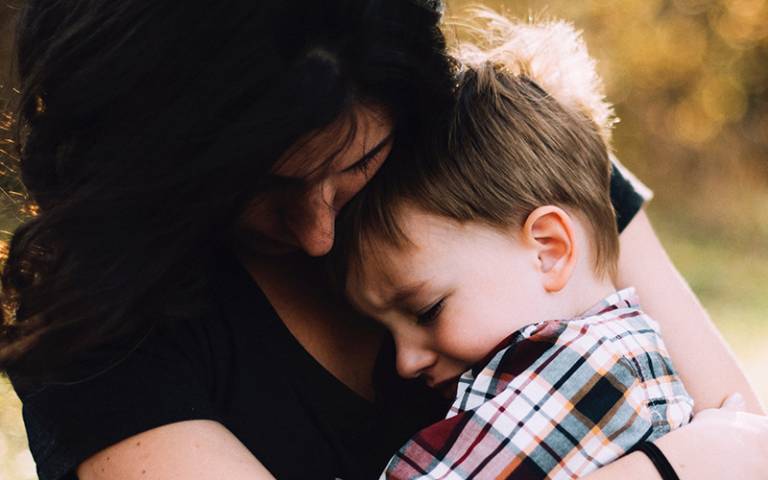The wellbeing of disabled children’s siblings severely impacted by lockdown
26 June 2020
Lockdown has severely affected the mental health of siblings who have brothers or sisters with disabilities, special educational needs (SEND) or long-term health conditions.

The research, by Sibs charity Chief Executive Clare Kassa with contributions by UCL Institute of Education (IOE) academic Dr Georgia Pavlopoulou, reveals 75% of parents think their sibling child’s mental health has worsened.
The study, which is the first to look at siblings’ experiences in the UK during the pandemic, noted that siblings are often an overlooked group of children in both school and wider communities for whom lockdown has had a tremendous impact on their health and wellbeing.
Having conducted a survey with 876 parents in May 2020, the team discovered that 50% of siblings are providing more care in lockdown. 1 in 3 siblings are also feeling isolated and missed support from family and friends in during lockdown.
Parents highlighted the lack of space and breaks for the siblings and the difficulties in managing their children’s different needs. One parent said: “Keeping up with typical activities and keeping one socialised whilst adapting the normal routines so drastically with another is very challenging.”
The report highlights several recommended actions, including:
- That siblings are recognised as a group of children who are vulnerable to isolation - very many are “children in need” and in many cases are young sibling carers. Siblings deserve greater attention and better planning for their needs.
- That the safeguarding of siblings is taken seriously by local authorities. The current crisis has exposed siblings to increased violence and risk – it is vital that families receive statutory support in order that they can protect siblings.
- Schools need to identify pupils who have a disabled brother or sister – not just as young carers, but from a wider context of vulnerability. Many siblings will need additional pastoral support and/or academic support when they return to the school environment.
- Recognition that the pandemic has had both an immediate and lasting effect on the mental health of siblings, who will need access to appropriate support from Child and Adolescent Mental Health Services in the months and years to come. Many siblings will have experienced psychological difficulties due to lack of respite, isolation and dealing with behaviours which challenge from their brothers and sisters.
- Siblings live in households where there is increased risk of poverty and deprivation. Financial support for siblings should be made available in the same way it has been made available to support their disabled brothers and sisters, so that they too can access resources such as technology for education, social support and relaxation.
Dr Georgia Pavlopoulou of the IOE’s Department of Psychology and Human Development said:
“Growing up with a disabled brother or sister brings unique joys and challenges. Siblings' needs are rarely heard or met by educational and healthcare professionals. The least-studied familial relationship before and during the lockdown is the sibling relationship.
“This survey shows the huge amounts of labour of love and the great deal of time that siblings dedicate to assist their disabled brother or sister. There were some comments about how families had bonded and pulled together and had more time to tackle some of the difficulties within their families. Most importantly the survey highlights the lack of support for struggles that they face such as loneliness and lack of respite time. It is important to hear from parents about how siblings have been coping with the lockdown to enable us to support families better.”
Clare Kassa said:
“We were hearing from siblings and their families about the enormous pressure they were facing during lockdown. These results show the huge impact the current situation is having on young siblings. Many are providing care and support, others are navigating challenging situations at home and some are being hurt by their brothers and sisters too. Siblings as young as 7 are having to home school themselves because parents are having to spend their time meeting the complex needs of their disabled child, often without any external support.
“We want the important role that siblings play, especially during the Covid-19 crisis, to be recognised and to ensure that siblings receive the mental health support they need in the months and years ahead.”
Links
- Read the report: ‘Coming second all the time: Life in lockdown for siblings of disabled children’
- View Dr Georgia Pavlopoulou’s research profile
- Department of Psychology and Human Development
- Sibs
- Related research: ‘In their own words, in their own photos: Adolescent females’ siblinghood experiences, needs and perspectives growing up with a preverbal autistic brother or sister’
- Related research: ‘I don't live with autism; I live with my sister’. Sisters’ accounts on growing up with their preverbal autistic siblings’
 Close
Close

